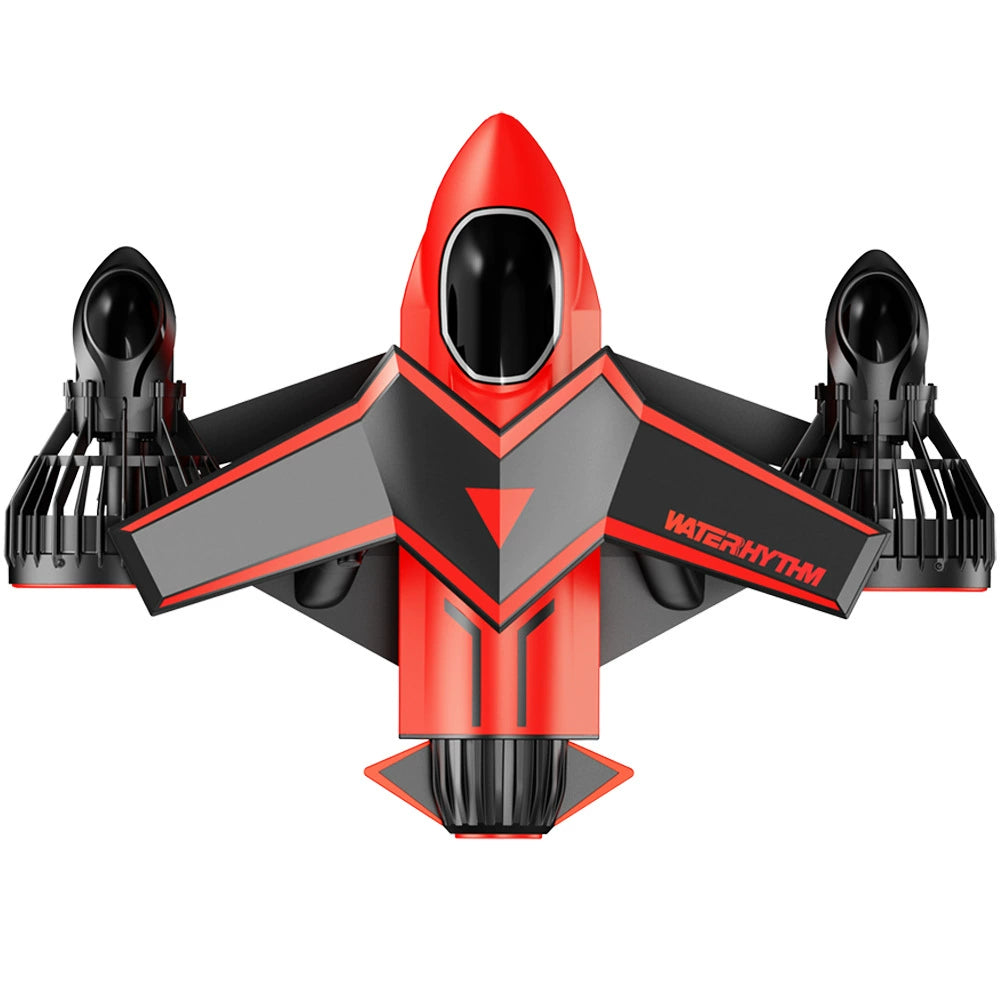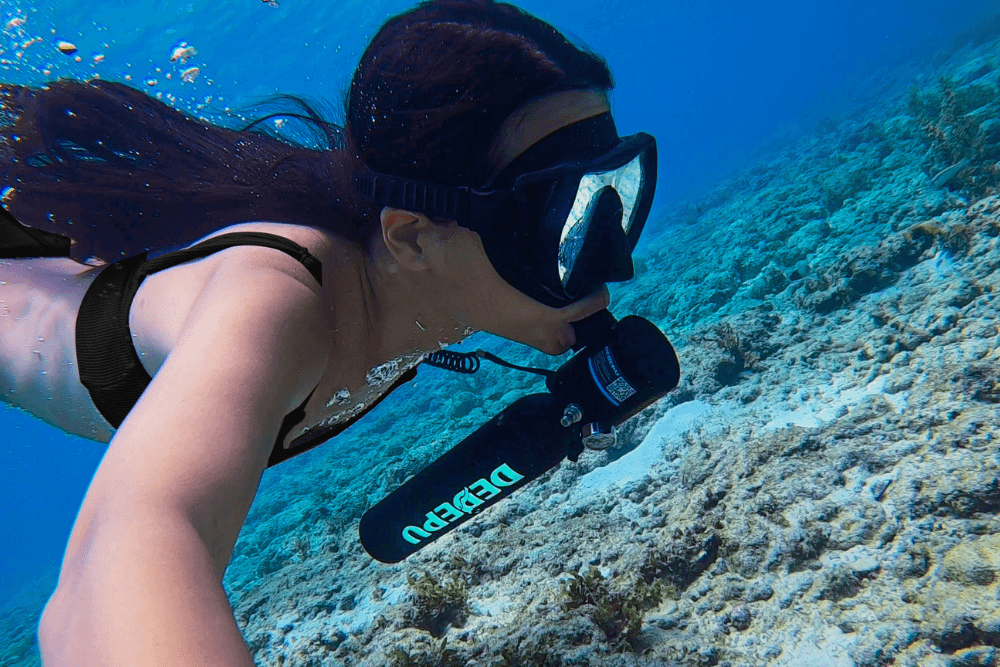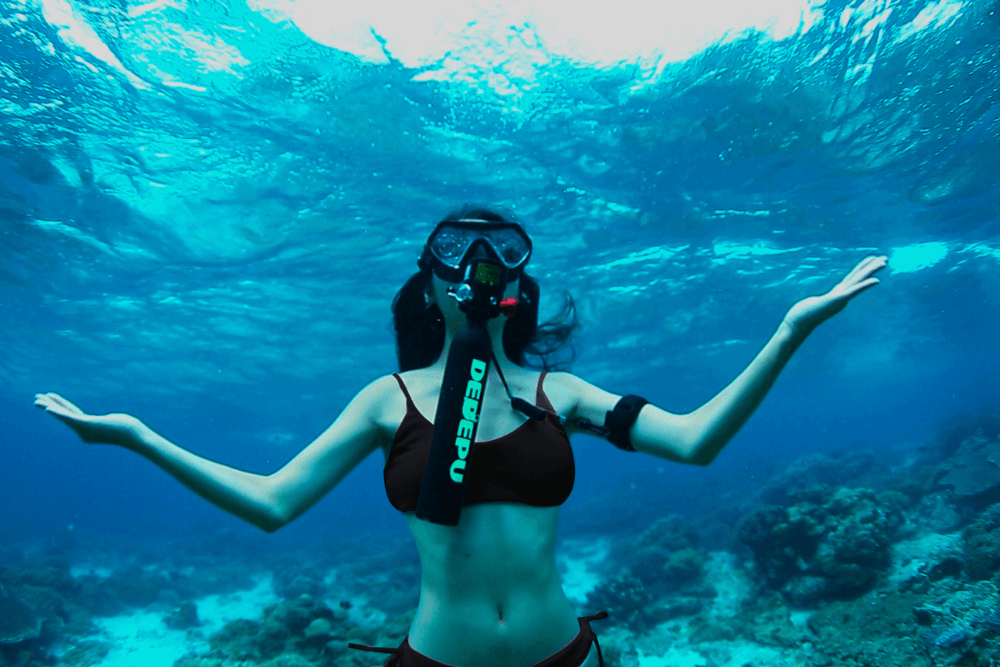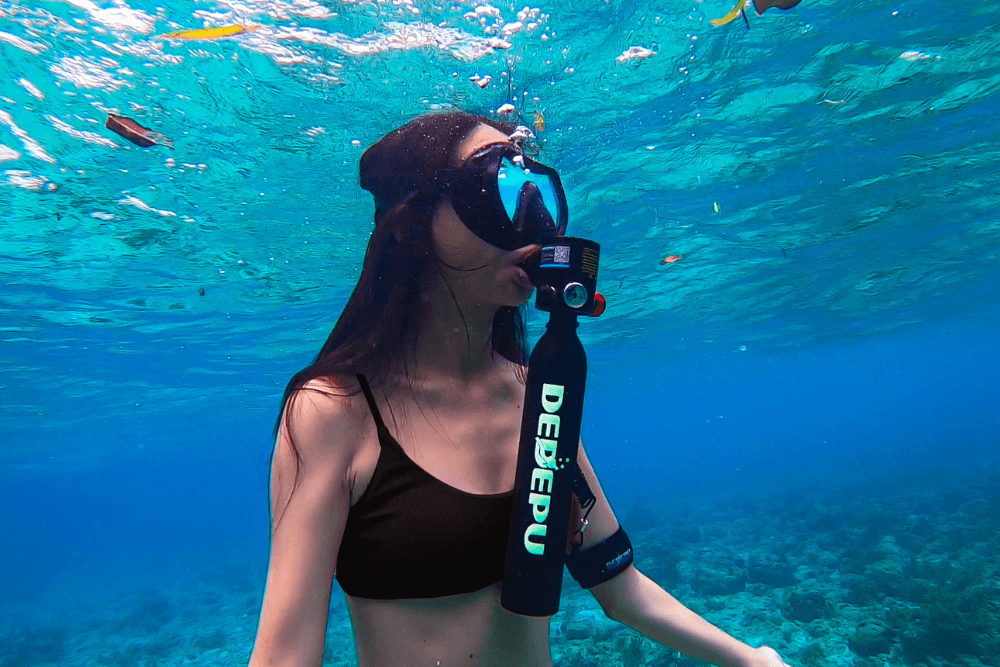After scuba diving, your body needs time to release excess nitrogen absorbed during the dive. Drinking alcohol too soon can increase dehydration (diving alone can cause 2-3 times more fluid loss than normal) and slow down nitrogen elimination, raising the risk of decompression sickness. Studies show that alcohol can double the time your body needs to off-gas nitrogen safely. Additionally, alcohol impairs coordination, making post-dive activities like boat travel or gear handling riskier. To stay safe, experts recommend waiting at least 12-24 hours after diving before consuming alcohol, depending on depth and dive duration. Hydrate well and prioritize rest first.
How Your Body Handles Air Underwater
When you breathe compressed air underwater, your body absorbs up to 5x more nitrogen than at the surface due to increased pressure. At 10 meters (33 feet), the surrounding pressure doubles, forcing nitrogen into your tissues. The deeper you go, the more nitrogen dissolves—at 30 meters (100 feet), your body absorbs 3x more nitrogen than at 10 meters.
Your blood and tissues act like a sponge, soaking up nitrogen until they reach saturation levels (typically after 60 minutes at a given depth). The longer and deeper you dive, the more nitrogen builds up. After surfacing, your body needs time to off-gas this excess nitrogen—a process that can take 12-24 hours, depending on dive depth and duration.
If you ascend too quickly, nitrogen forms microscopic bubbles in your bloodstream, increasing the risk of decompression sickness (DCS). Studies show that 15-20% of DCS cases occur in divers who ignored proper ascent rates or surface intervals.
How Nitrogen Absorption Works
At 10 meters (33 feet), pressure is 2x surface level, increasing nitrogen absorption by 100%.
At 20 meters (66 feet), pressure is 3x, tripling nitrogen uptake.
At 30 meters (100 feet), pressure is 4x, leading to 4x more nitrogen in tissues.
Saturation & Off-Gassing
Muscle and fat tissues absorb nitrogen 3x slower than blood but release it 5x slower.
A 60-minute dive at 18 meters (60 feet) requires at least 1 hour of surface time before flying or drinking alcohol.
Repetitive dives increase nitrogen retention—after three dives in a day, your body may need 18+ hours to fully off-gas.
Risk Factors for Decompression Sickness
Fast ascents (>9 meters/30 feet per minute) increase bubble formation risk by 40%.
Cold water dives slow circulation, reducing nitrogen elimination by 15-20%.
Dehydration thickens blood, raising DCS risk by 30%.
How to Reduce Nitrogen Risks
Ascend at 9 meters (30 feet) per minute—slower if diving deeper than 30 meters (100 feet).
Take safety stops—a 3-5 minute pause at 5 meters (15 feet) cuts DCS risk by 50%.
Stay hydrated—drinking 500ml of water before diving improves nitrogen off-gassing by 10%.
By understanding how your body processes nitrogen, you can dive smarter and stay safer.

Alcohol vs. Decompression: A Bad Mix
After a dive, your body is still working to eliminate excess nitrogen—a process that takes 12-24 hours depending on depth and dive time. Drinking alcohol too soon interferes with this critical off-gassing phase. Research shows that just 1-2 standard drinks can slow nitrogen release by 20-30%, increasing decompression sickness (DCS) risk.
Alcohol expands blood vessels, which may accelerate bubble formation in tissues. Studies on divers who consumed alcohol within 8 hours of diving found a 15% higher incidence of mild DCS symptoms compared to those who waited. Additionally, alcohol dehydrates you at a rate of 100ml of fluid loss per standard drink, compounding the 2-3L of fluid already lost during a typical dive.
The combination of slower nitrogen clearance and dehydration makes alcohol a high-risk factor post-dive. For safety, experts recommend waiting at least 12 hours after a single dive and 24 hours after multiple or deep dives (>30m/100ft) before drinking.
How Alcohol Slows Nitrogen Elimination
Blood flow reduction: Alcohol decreases circulation efficiency by 10-15%, delaying nitrogen off-gassing.
Liver priority shift: Your liver processes alcohol at 15mL per hour, diverting resources from nitrogen filtration.
Increased bubble growth: Alcohol’s vasodilation effect raises the chance of microbubbles merging into dangerous clusters by 25%.
Dehydration & DCS Risk
A single dive can cause 2-3% body weight loss in fluids. Adding alcohol worsens this:
1 beer (5% ABV) = ~150mL fluid loss
1 shot (40% ABV) = ~200mL fluid loss
Blood viscosity increases by 5% when dehydrated, reducing nitrogen diffusion efficiency.
Real-World Data on Alcohol-Related DCS
A DAN (Divers Alert Network) study of 500 DCS cases found:
22% involved alcohol consumption within 12 hours post-dive.
Symptoms appeared 30% faster in drinkers (average onset: 90 minutes vs. 130 minutes in non-drinkers).
Safe Waiting Times
Single dive (18m/60ft max): Wait 8-12 hours before drinking.
Repetitive/multi-day dives: 24-hour minimum alcohol-free period.
Deep dives (>30m/100ft): Extend to 36 hours for full nitrogen clearance.
Alternatives to Alcohol
Electrolyte drinks restore hydration 50% faster than water alone.
Coconut water replenishes potassium lost during diving (approx. 600mg per dive).
Bottom line: Alcohol and decompression don’t mix. Prioritize hydration and rest—your body will thank you.
Dehydration Danger: Water vs. Beer
Diving dehydrates you faster than most activities—even in warm water, you lose 1.5-2L of fluids during a typical 60-minute dive due to increased breathing rate and immersion diuresis (the "underwater pee effect"). For every 10m (33ft) of depth, your kidneys produce 50-100mL more urine from pressure changes.
Now imagine reaching for a beer after surfacing. That cold brew might seem refreshing, but alcohol is a diuretic, meaning it forces your body to lose 100-150mL of water per standard drink. So while you're already 3-5% dehydrated from diving, each beer pushes you further into fluid deficit. Studies show that drinking 2 beers post-dive can double recovery time compared to hydrating with water or electrolytes.
The math doesn’t lie:
1L of seawater exposure = 500mL fluid loss (through osmosis)
1 beer (5% ABV) = 250mL net fluid loss after accounting for the drink’s water content
1 shot of spirits (40% ABV) = 300mL net loss
Bottom line: Your body is already fighting dehydration from diving. Alcohol makes it worse.
The Science of Post-Dive Dehydration
Breathing dry tank air: At 200L/min flow rate, you lose 30-50mL of water per minute just from respiration.
Immersion diuresis: Water pressure increases urine output by 300% compared to surface levels.
Sweating in wetsuits: Even in 25°C (77°F) water, core temps rise, causing 200-400mL of sweat per hour.
Alcohol’s Double Whammy
Blood alcohol concentration (BAC) rises 20% faster when dehydrated.
Kidney efficiency drops 15% post-dive, slowing alcohol processing.
1 pint of beer (5% ABV):
Contains 450mL liquid but causes 600mL total fluid loss (net -150mL).
Electrolyte imbalance: Alcohol flushes 150mg sodium and 50mg potassium per drink—minerals critical for rehydration.
Hydration Solutions That Work
Coconut water: Replenishes 600mg potassium/L (vs. 150mg in sports drinks).
Oral rehydration salts (ORS): Restores fluid balance 3x faster than plain water.
Water intake formula:
Minimum: 500mL within first 30 minutes post-dive.
Optimal: 1.5x weight loss (e.g., if you lost 1kg, drink 1.5L).
Real-World Recovery Times
| Hydration Method | Time to Rehydrate (from 3% deficit) |
|---|---|
| Plain water | 90-120 minutes |
| Beer only | 240+ minutes (never fully recovers) |
| ORS solution | 45-60 minutes |
Pro tip: Check your urine color. If it’s darker than #3 on the hydration chart, you’re still ≥2% dehydrated and shouldn’t drink alcohol.
Stay smart—your post-dive drink should hydrate, not dehydrate.
Slower Reactions = Higher Risk
Diving already slows you down—literally. At 30m (100ft), nitrogen narcosis can impair reaction times by 10-20%, similar to a 0.05% blood alcohol level. Now add actual alcohol: just 1 drink (0.02% BAC) post-dive compounds this effect, creating a 30-40% slower response rate to emergencies.
Soaked divers (from gear removal) have 15% worse grip strength
0.05% BAC divers take 0.8 seconds longer to don life jackets vs. sober peers
Cold divers (core temp ≤35°C/95°F) show 25% poorer decision-making accuracy
The math is brutal:
Standard emergency oxygen deployment requires 9 precise steps
Each 0.1% BAC increase adds 2 seconds/step
At 0.08% BAC (legal driving limit), you'd waste 18 extra seconds when every second counts
The Neurophysics of Impaired Divers
Nitrogen residual effect: Even surfaced, divers retain 5-8% slower neural transmission for 4-6 hours
Alcohol synergy:
1 beer post-dive = 12% longer brake reaction time in boat driving
2 beers = 28% increase in instrument misreading
Task failure rates:
| Scenario | Sober Error Rate | 0.05% BAC Error Rate |
|---|---|---|
| Tank valve checks | 3% | 17% |
| Depth gauge reading | 1% | 9% |
| Buddy communication | 5% | 22% |
Critical Thresholds
Boat ladder ascent: 0.04% BAC increases fall risk by 40%
Dive computer operation:
Menu navigation speed drops 2.5x at 0.06% BAC
Decompression calculation errors spike 300%
Night diving aftermath:
Alcohol reduces night vision recovery by 18 minutes per drink
Pupil dilation control worsens by 35%
Sobering Solutions
2-Hour Rule: Wait 120 minutes post-dive before any alcohol to allow:
80% nitrogen clearance (for 18m/60ft dives)
Core temp normalization (if cold)
Caffeine Alternative:
200mg coffee improves alertness 22% without dehydration
Implement 3-point sobriety test before boat travel:
Finger-to-nose accuracy
5-second balance test
Repeat 5 random numbers backward
How Long Should You Wait Before Drinking?
Nitrogen off-gassing follows a half-life of 60-90 minutes for most tissues, meaning after 5 hours, about 85-90% of excess nitrogen clears. But alcohol throws a wrench in the process: drinking within 8 hours of diving can double your DCS risk, according to DAN studies.
Single no-deco dive (12m/40ft, 45min): Wait 8 hours minimum
Multi-level dive (18m/60ft max): Push to 12 hours
Deep dive (30m/100ft): Full 24-hour wait required
Repetitive dives (3+ in a day): 36-hour alcohol-free zone
Cold water? Add 20% more time—your circulation takes longer to eliminate nitrogen when chilled.
The Waiting Game: By the Numbers
1. Tissue Loading Matters
Muscle tissue releases nitrogen at 50mL/hour
Fat tissue (common in BMI >25) holds nitrogen 3x longer
Post-dive flight risk:
Waiting 18 hours cuts DCS odds to 0.5%
Drinking at 12 hours bumps risk to 2.3%
2. Alcohol’s Clearance Timeline
Liver processes 1 standard drink/hour (15mL pure alcohol)
But post-dive, efficiency drops 20% due to:
Dehydration (kidneys prioritize water retention)
Residual nitrogen (occupies 5-7% of blood filtration capacity)
3. The 12-24-36 Rule
| Dive Profile | Minimum Wait | Safe Wait | Ideal Wait |
|---|---|---|---|
| Single, <12m | 6h | 8h | 12h |
| 2 dives, <18m | 10h | 12h | 18h |
| Deep >30m | 18h | 24h | 36h |
Hydration Accelerators
1L oral rehydration solution = 90-minute nitrogen clearance boost
30min light exercise (walking) increases off-gassing by 15%
Avoid these slowdowns:
Caffeine (increases urine output by 30%)
Salty snacks (adds 2 hours to rehydration)
Opt for hydrating snacks packed in reusable containers.
When to Break the Rules
Only 1 scenario allows earlier drinking:
Single dive <10m for <30min
Consumed 1L electrolyte drink immediately after
Stayed warm (core temp ≥36°C/97°F)
→ Then 6-hour wait suffices
Pro tip: Use your dive computer’s nitrogen graph. When tissue loading bars drop below 30%, you’re likely in the clear.
Bottom line: Your body’s on dive time—not happy hour time. Watch the clock, not the bar menu.






Hinterlasse einen Kommentar
Alle Kommentare werden vor der Veröffentlichung geprüft.
Diese Website ist durch hCaptcha geschützt und es gelten die allgemeinen Geschäftsbedingungen und Datenschutzbestimmungen von hCaptcha.